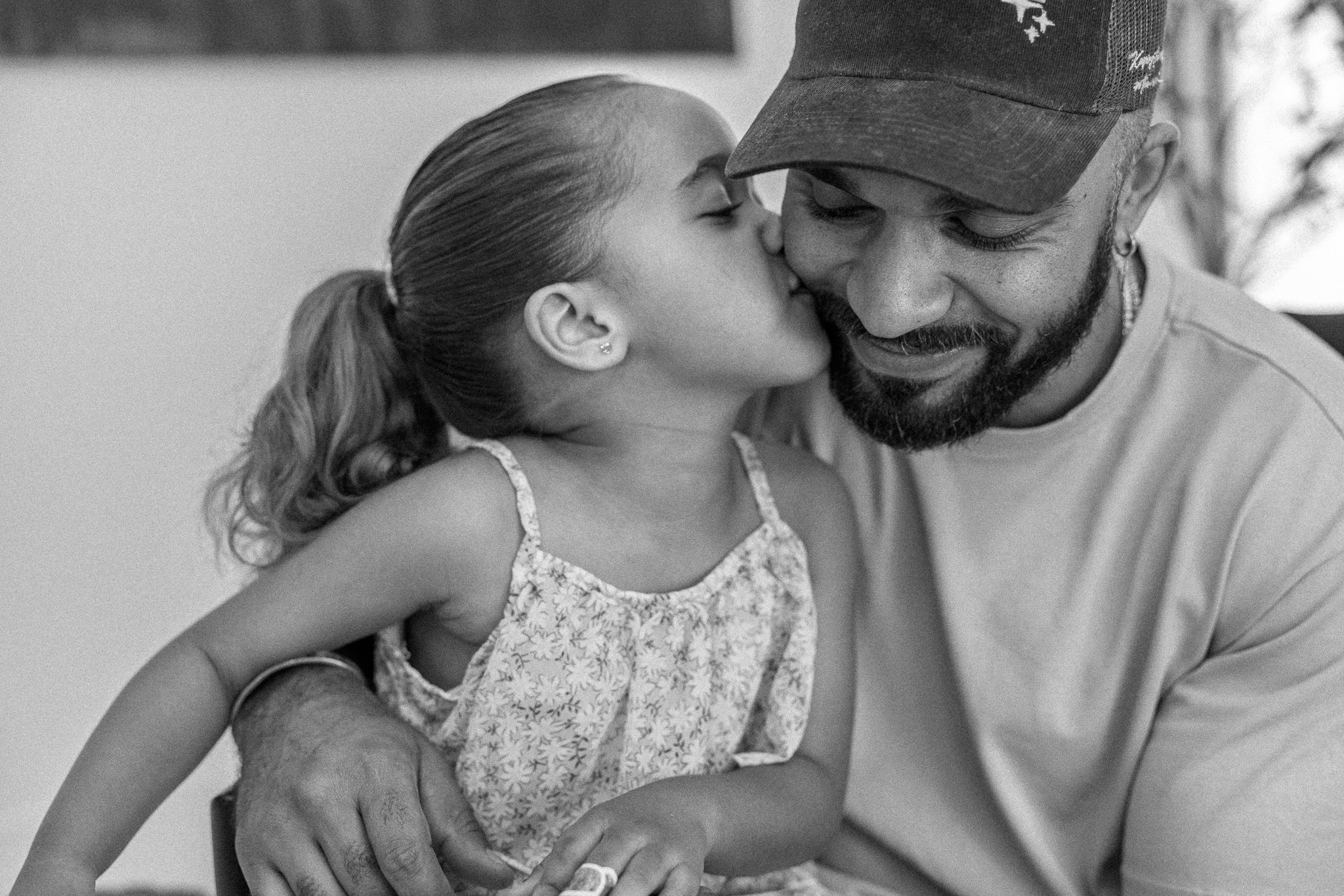
Courtesy of Ayana Iman
Courtesy of Ayana Iman

Ayana Iman and her daughter (Courtesy of Ayana Iman)
Co-parenting takes work, period. It is not for the weak of heart or those who lead their lives through ego. Quite the contrary — it is for the flexible, considerate, and extremely patient types that know how to leave a party when it’s time. So what happens when parenting becomes more difficult than learning the tango? You find comfortable shoes and try not to step on anyone’s toes. Sometimes it requires finding a trained instructor who knows how to whip you into shape. But, in the end, it takes both parties involved to accept accountability for their responsibilities in managing expectations in a co-parenting relationship.
Here’s the thing, you can only co-parent if the other person chooses to participate. In my case, I do not co-parent because the relationship between myself and my daughter’s father is non-existent. I have sole custody, which means I have primary residential and legal custody. I do not have to ask for permission to parent her as I see fit, and I like it that way. This particular style of parenting works for me because there was no other choice. Simple conversations like coordinating pick-up times, or asking for money to help out with her activities, were far and few in–between. Instead of staying in a constant state of anger when things did not go my way, I decided to let go of the need to control the situation. Focusing on how to make the most out of my days and quality time spent with her.
As the saying goes: expectations are the thief of joy. We have all experienced the disappointment of believing in someone, only to find ourselves let down by a less than stellar outcome. It can become a game of he said, she said, they said, but nobody takes the time to apologize. Leaving all parties involved stressed and tense and not as receptive to backing down. That means temper your expectations with the reality that things can, and most likely, will go wrong. C’est la vie. Such is life!
Five Steps You Can Take to Manage Expectations
Learn each other’s trigger words
We all have words that make us, well, a little crazy. It’s important to be mindful when speaking to one another and to not use inflammatory language to stir the pot.

Courtesy of Ayana Iman
Give grace when it’s needed
Imagine if you were late to pick up your child from school because your work tasks ran longer than expected. The school administrator called the other parent about approved pick-up times, which added more fuel to the fire. Instead of focusing on spending quality time together, you are bombarded with insults. Extending grace in this moment of need could have rectified the situation and restored the trust between the two of you.
Related Articles:
Remembering the Three C’s When Parenting Queer Children
Omarion on the Power of Fatherhood: ‘It’s a Part of my Purpose’
How I Fixed Broken Pieces in My Marriage
Communicate what you’re doing
Communication is key to every successful relationship and imperative to any co-parenting relationship. When you share your plans, it gives the other parent time to plan accordingly. Be wary of Over communicating can also be an issue, which confuses. Share what people need or want to know without being condescending.
Ask questions
Questions are for clarity and understanding. When you know what’s going on, you eliminate confusion. There’s nothing worse than having expectations but not understanding the reality of the situation. Make sure you’re clear on everything from travel to who attends parent-teacher conferences.
Check-in before making final decisions

Courtesy of Ayana Iman
When you’re committed to having a healthy co-parenting relationship, then you can’t make any decisions without the other. The key is not making hasty decisions for the sake of making one. You want to make sure both parents have input, and the child’s wellbeing is at the center of it all.
When you decide to co-parent, you agree to the terms of engagement: listening, compromise, and empathy. Supporting the child financially and physically being present goes without saying. “Don’t throw the baby out with the bathwater,” my mother would say. You don’t have to destroy your parenting relationship to be heard and taken seriously. Think about your children. They need to feel safe, and the way you interact will reinforce security, love, and protection.
Related Articles
Discover why Jasmine Guillory’s latest novel Flirting Lessons is a must-read—and how the author continues to redefine modern romance with layered Black heroines, real emotional depth, and Black literature that feel both magical and true.
Bozoma Saint John talks Black motherhood, grief, self-love, and finding joy again. Don’t miss her powerful conversation on building legacy and living boldly.
Tyler Lepley shows the beauty of Black fatherhood, blended family life with Miracle Watts, & raising his three children in this Father Noir spotlight.
Featured Articles
When Elitia and Cullen Mattox found each other, they decided that they wanted their new relationship together, their union, to be healthier and different.
Celebrate their marriage and partnership with the release of the documentary “Time II: Unfinished Business”
Our intent is to share love so that people can see, like love really conquers everything. Topics like marriage and finance, Black relationships and parenting.
The vision for our engagement shoot was to celebrate ourselves as a Young Power Couple with an upcoming wedding, celebrating our five year anniversary - glammed up and taking over New York.
Meagan Good and DeVon Franklin’s new relationships are a testament to healing, growth, and the belief that love can find you again when you least expect it.
HEY CHI-TOWN, who’s hungry?! In honor of #BlackBusinessMonth, we teamed up with @eatokratheapp, a Black-owned app designed to connect you with some of the best #BlackOwnedRestaurants in YOUR city – and this week, we’re highlighting some of Chicago’s best!











